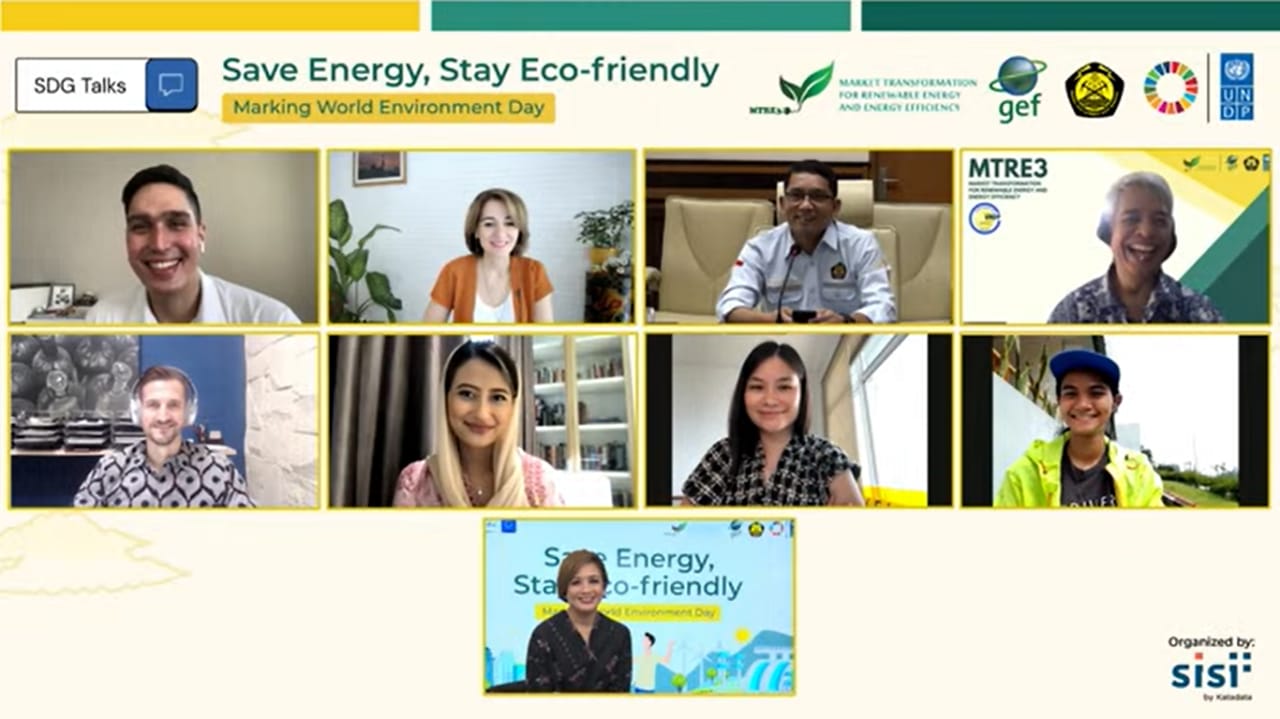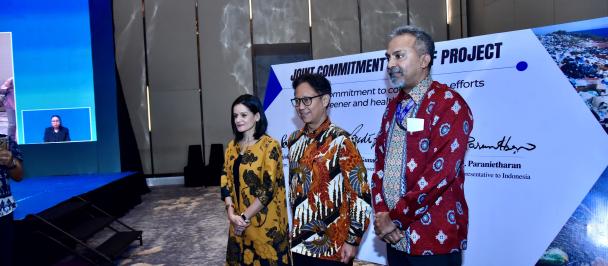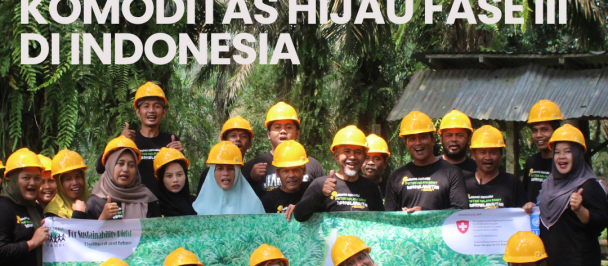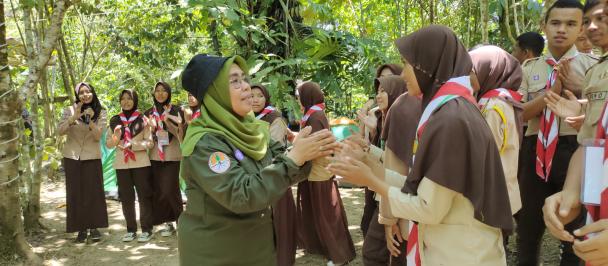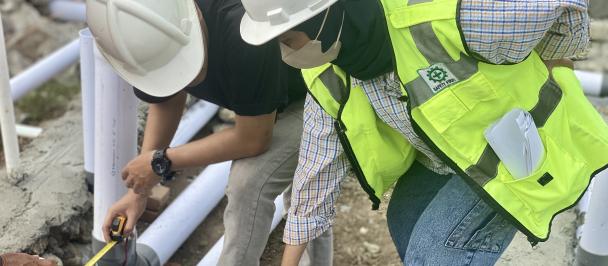Jakarta, June 4 - Indonesia’s youth hold the key to mobilize national action to adopt an emissions-free green lifestyle, as the South East Asian economic giant seeks innovative ways to cut greenhouse gas emissions, experts and youth influencers said during a webinar hosted by the United Nations Development Programme (UNDP) marking World Environment Day.
Entitled “Save Energy, Stay Eco-Friendly” the virtual event featured key speakers from the Indonesian Government, youth entrepreneurs and environmental activists. UNDP’s Market Transformation for Renewable Energy and Energy Efficiency (MTRE3) project organized the event in partnership with the Ministry of Energy and Mineral Resources.
UNDP Indonesia Deputy Resident Representative, Ms. Sophie Kemkhadze said going green is the only way forward for Indonesia and its young people.
“Gone are the days of our insatiable appetite for fossil fuel and brown energy. Instead, we embrace a new era of innovation where we transition to zero-level emissions, and consumption of renewable energy. This shift is part of our responsibility towards achieving the Sustainable Development Goals or the SDGs in Indonesia,” said Ms. Kemkhadze in opening remarks.
“We need more action, especially on the ground, and from young people like yourselves, to mobilize action,” she added.
Indonesia, South-East Asia’s biggest economy and energy consumer, is currently ranked 71st out of 115 countries on the Energy Transition Index (ETI) 2021. Signifying increased support on sustainable energy, its ETI score has improved by 6 percent since 2021, with biggest improvement in transition readiness at 10 percent.
“World Environment Day is an opportunity for us to increase public awareness of the need to protect our environment. Nowadays issues related to energy efficiency and energy equality have become quite critical. The youth, students and women must be at the forefront of a national movement to promote energy efficiency,” said Mr. Dadan Kusdiana, Directorate General of Renewable Energy and Energy Conservation at the Ministry of Energy and Mineral Resources.
Indonesia has committed to reducing emissions by 29 percent from the business-as-usual scenario by 2030, or 41 percent with international assistance. Scientists say that much of the emission come from both the massive production and public use of fossil fuel for electricity.
Recognizing Indonesia’s business landscape for renewable energy business, Ms. Dyah Roro Esti, Member of the Commission on Energy, Research and Technology in the House of Representatives (DPR) said the Indonesian Government has prioritized discussions over a draft bill on renewable energy this year.
“We agree that we must support the transition to clean energy transition. We hope that this bill can catalyze investment in this sector and solidify our commitment”, said Ms. Esti.
But greater youth participation in the transition to renewable energy requires stronger support from all stakeholders by way of greater job creation in the green sector.
“Youth are entering a stage in their lives where they want to design their future, so we need to create alternative opportunities for them. We need to create exciting opportunities in the green and renewable energy sector,” said Ms. Switenia Puspa, Founder and Executive Director of the Divers Clean Action.
Panelists including green architect, Ms. Stephanie Larassati shared practical tips to adopt an eco-friendly lifestyle at home, from decreased use of electricity to using wide spaces and louvre windows to maximize natural light.
Applying green international standards at public buildings is also one of the key objectives of UNDP’s Market Transformation for Renewable Energy and Energy Efficiency (MTRE3) project which recently supported efforts by the holding companies of two of Indonesia’s major airports —in Jakarta and Bali —to earn the global standard ISO 50001 for energy management.
Actor and green activist Mr. Marcel Chandrawinata reminded youth to “walk the talk” to help propel a green lifestyle into a nationwide movement.
“Green living is not an option, it’s our responsibility. We need to live efficiently. By adopting a clean lifestyle, we can set an example for our friends and others,” said Mr. Chandrawinata.
Despite growing public support on energy efficiency, the discussion remains a sensitive political issue with Indonesia relying largely on the so-called brown energy sector.

 Locations
Locations